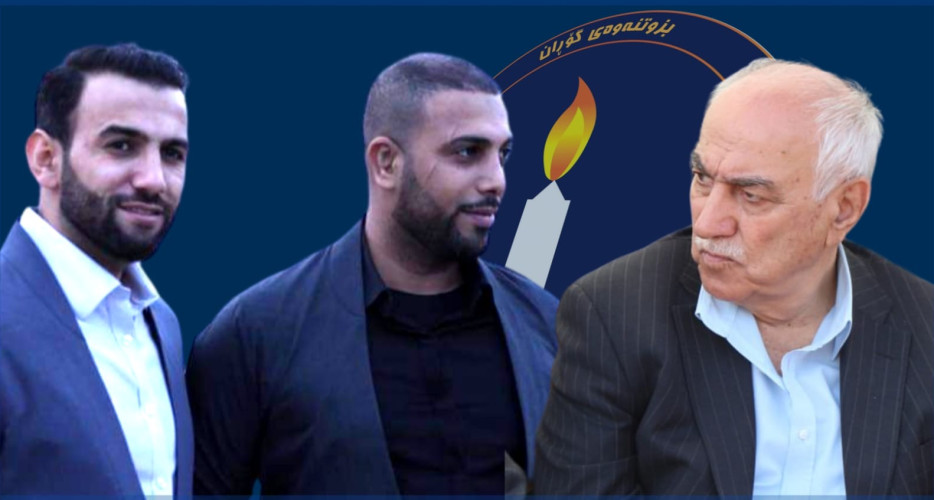
Peregraf
With elections for the Kurdistan Parliament fast approaching, internal conflicts within the Change Movement (Gorran) have broken out into the open. They pit current party leader Omar Said Ali on one side against the sons of late party founder Nawshirwan Mustafa on the other, raising the possibility of a new split within the once influential political force.
Hoshyar Omar, the organizer of the Gorran Diplomatic Relations Chamber, a member of the National Council and a close associate of Mustafa’s sons, recently published a 151-page article calling Ali the “engineer of the collapse of the Gorran Movement.” It details internal discussions since the 2017 independence referendum and accuses Ali of betraying the party.
“His program is to prevent the election of the executive committee and the secretary general and to participate in parliamentary elections in coalition with another party. He does not care whether Gorran wins seats or not. As a result, he will destroy the Gorran Movement,” Omar wrote in the article.
He added that “original Gorran” supporters will not be part of this “conspiracy.” They will work to return the party to reality, he proclaims.
Sources within Gorran told Peregraf that the article is the product of accumulating tensions between Mustafa’s sons, Nimaand Chia, and Ali and their respective supporters.
One person close to Ali told Peregraf that they viewed the article as "the position and words of the sons of Nawshirwan Mustafa."The source viewed the brothers as “political tourists” and declared that it is against the spirit of Gorran for power to pass from father to son.
According to a senior Gorran source who has ties with both factions, Ali and the Mustafa brothers are no longer on speaking terms and do not have contact with each other.
“The essence of the current conflict is about the management of Gorran and the powers within the movement, which is directly related to money,” the source told Peregraf.
At the most recent party conference in January, Mustafa’s sons proposed the formation of a committee to manage the party’s affairs, but it did not receive majority support from conference voters. In response, the brothers have suggested in internal meetings that they may split from the movement.
“There are divisions at all levels,” the source said, specifically including the Gorran ministers in the Kurdistan Regional Government (KRG) cabinet.
The timing for these tensions coming to a head could not be worse. Critical elections for the Kurdistan Parliament are scheduled for June 10. The party performed terribly in the 2021 elections to the Council of Representatives in Baghdad, losing all of its seats.
Gorran is dealing with many other internal rifts beyond the conflict between Mustafa’s sons and Ali. Since Mustafa died in May 2017, dozens of senior party officials have left the movement and refused to reconcile with the leadership. They form a substantial dissident contingent that sits outside the party proper, but nevertheless influences its activities.
Informed sources told Peregraf that the party is unable to work with the dissidents for two main reasons. First, they object to Mustafa’s sons’ financial control over the party headquarters on Zargata Hill, a 122-acre property of prime real estate in the center of Sulaimaniyah city, and the Wsha Company. While these factors are a constant topic of conversation with Gorran circles, Nima and Chia refuse to acknowledge them as a source of tension within the party.
Second, the dissidents want the party to leave the KRG cabinet and officially resume its place in the opposition. When Ali and the party leadership decided go into government with KRG Prime Minister Masrour Barzani, they declared that they would resign if the party’s reform agenda was not adopted. However, when the party’s proposals were ignored, its ministers stayed in the cabinet. This lost them the respect of the electorate.
It is possible that Gorran will be completely wiped out in the upcoming elections. This represents a remarkable change offortune from 2013, when it won around a half-million votes and 24 seats in parliament. Since then, it has progressively weakened. The majority of its former supporters will likely sit out the election, resigned to political hopelessness.